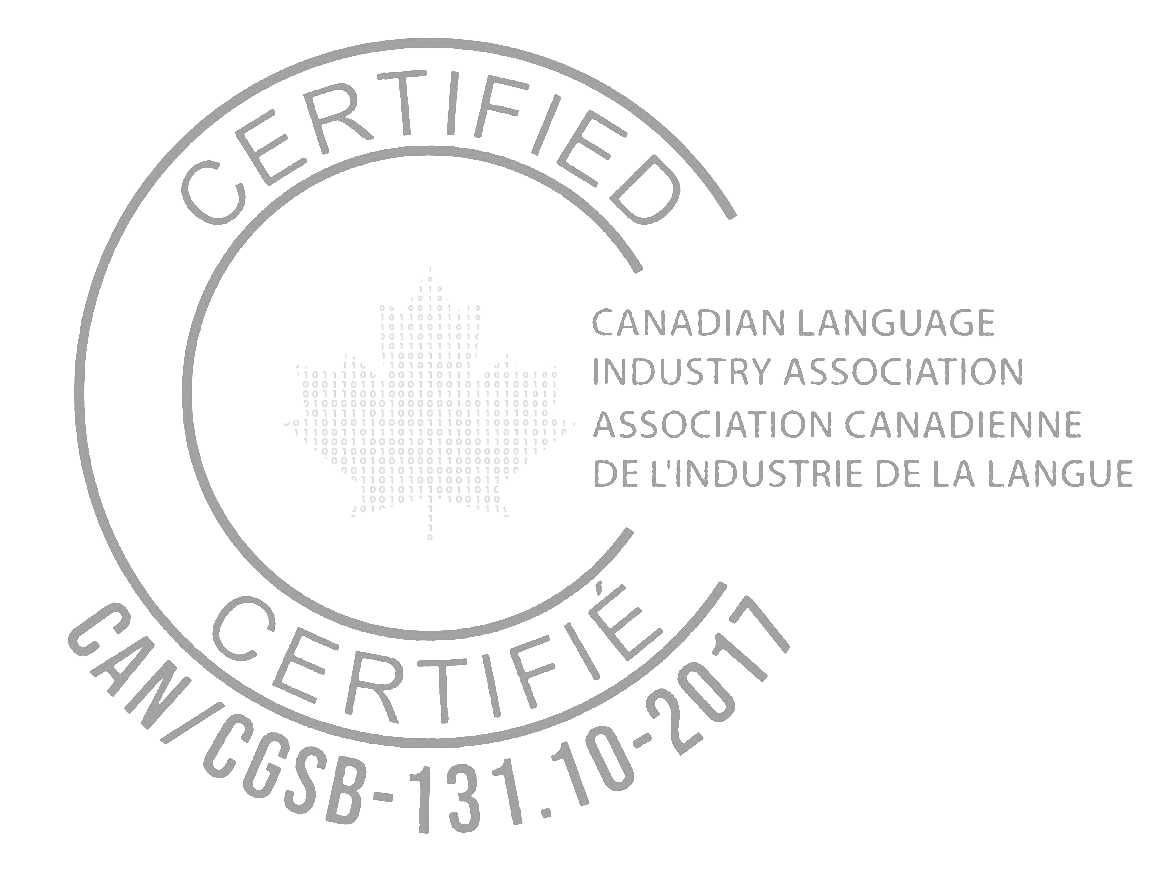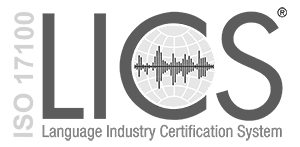Picture this: A multi-billion-dollar merger crumbles at the eleventh hour. The culprit? A single mistranslated term in a contract. This isn't the plot of a Hollywood thriller—it's a very real risk in today's globalized financial landscape.
In the high-stakes world of international finance, where a misplaced comma can cost millions, professional translators are the unsung heroes standing between success and catastrophe. They're not just linguists; they're the guardians of clarity, the bridges between cultures, and often the invisible force propelling deals to fruition.
As financial markets become increasingly interconnected, the role of these linguistic experts has never been more critical. They don't just translate words; they translate intent, nuance, and cultural context—elements that can make or break a deal.
This blog pulls back the curtain on the indispensable world of professional translations in global finance. We'll explore how these skilled professionals navigate the treacherous waters of cross-border negotiations, ensure regulatory compliance across jurisdictions, and ultimately, how they've become the secret weapon in the arsenal of successful international financial institutions.
Prepare to discover why, in an era of A.I. and machine translation, human expertise remains critical in high-stakes financial dealings. Let's dive into the fascinating intersection of language, culture, and global finance.
Key Takeaways
- Professional translators ensure clear and precise communication, safeguarding against costly misunderstandings in high-stakes financial negotiations.
- Expert translators act as crucial cultural mediators, fostering trust and collaboration essential for successful international deals and mergers.
- Accurate language translators play a vital role in meeting complex regulatory standards across borders, safeguarding financial institutions from legal risks and ensuring transparency.
- By enhancing mutual understanding and credibility, professional translation services significantly boost the success rates of international business deals and mergers.
Beyond Words: The Multifaceted Impact of Professional Translations
As financial markets become increasingly globalized, the role of professional translators in high-stakes financial negotiations, mergers, and acquisitions has never been more critical. Their expertise in language and culture not only prevents costly misunderstandings, but also fosters trust and clarity between negotiating parties.
They serve as cultural mediators, bridging gaps in understanding that can make or break international deals. This cultural expertise is particularly crucial in the context of mergers and acquisitions, where nuances in communication can significantly influence outcomes. Recent studies have underscored the importance of this role, highlighting how effective translation and cultural interpretation directly correlate with the success of cross-border business endeavors.
For example, according to research by McKinsey, approximately 95 percent of executives say cultural fit is vital to a merger's success.
"Some 95 percent of executives describe cultural fit as critical to the success of integration. Yet 25 percent cite a lack of cultural cohesion and alignment as the primary reason integration efforts fail.”
Source: McKinsey
Professional translators play a critical role in this, ensuring clear and consistent communication during cross-border negotiations.
Another study by IMAA found that companies prioritizing clear and consistent communication during cross-border negotiations were 20% more likely to achieve their strategic goals and ensure smoother integrations post-deal.
How Professional Translators Aid Cultural Integration
Cultural misunderstandings can jeopardize even the most well-intentioned negotiations. Professional translators bring a deep understanding of cultural contexts to the table, which is crucial for maintaining harmony and avoiding misinterpretations. Cultural nuances encompass a wide array of factors, including communication styles, business etiquette, decision-making processes, and negotiation tactics. For instance, in some cultures, indirect communication and saving face are essential, while others value directness and transparency. Understanding these subtleties can prevent potential conflicts and foster a more collaborative environment.
"There is a human factor at every level of every company. No matter how well-researched, educated, informed, and detailed, the strategy of a business ultimately depends on the people executing it. In a word, we call that ‘culture’.”
Source: Foley & Lardner LLP
According to Foley & Lardner LLP, one critical aspect of cultural competence in financial negotiations is the ability to navigate different business etiquettes and expectations. In hierarchical cultures, for example, decisions may be made by top executives with little input from subordinates, whereas, in more egalitarian cultures, consensus and team involvement might be the norm. Certified translation services with cultural expertise can facilitate these processes by ensuring that communication respects these cultural norms, thereby enhancing mutual understanding and cooperation.
Moreover, cultural alignment can significantly impact the integration process post-merger. Research shows that cultural misalignment can lead to employee resistance, reduced morale, and productivity losses, which are critical factors in the success of a merger or acquisition. Evaluating cultural compatibility involves assessing core values, management styles, and operational practices of both organizations to identify potential areas of conflict and opportunities for synergy.
Professional translators play an indispensable role in this context by bridging cultural gaps and ensuring that all parties feel respected and understood. This not only facilitates smoother negotiations but also contributes to a more successful and sustainable integration, ultimately supporting the long-term success of the merger or acquisition. Cultural integration plays a crucial role in achieving successful mergers and acquisitions, which, in turn, becomes an important factor in increasing the likelihood of deal closures.
Professional translators bring more than just linguistic skills; they offer deep cultural insights and industry-specific knowledge that are crucial for successful financial translations and negotiations.
Boosting Deal Success with Professional Translations
Clear communication and mutual understanding are essential for successful cross-border negotiations. Utilizing official certified translation services ensures that all parties fully comprehend the terms and conditions of agreements, eliminating language barriers that can hinder effective negotiations. This comprehensive understanding facilitates smoother transactions and fosters a collaborative atmosphere, essential for closing deals.
Professional translation services provide more than just linguistic accuracy; they also offer cultural insights that can prevent misunderstandings and build trust among negotiating parties. By translating not only the words but also the intent and context, professional translators help bridge gaps between different business cultures, aligning expectations and reducing the risk of misinterpretation. This cultural sensitivity can be pivotal in maintaining the momentum of negotiations and preventing conflicts that might derail the deal.
Moreover, accurate and culturally aware translations enhance the credibility of the negotiating parties. When all documents are professionally translated, it demonstrates a commitment to transparency and respect for all stakeholders involved. This commitment can significantly boost confidence among the parties, encouraging a more open and productive dialogue.
Research indicates that the success of mergers and acquisitions is closely linked to effective communication strategies. According to Deloitte, a significant percentage of executives attribute the success of their M&A transactions to thorough communication and the ability to align culturally with the acquired company. Companies that prioritize clear and consistent communication throughout the negotiation process are more likely to achieve their strategic goals and provide smoother integrations post-deal.
Professional translation services are invaluable in enhancing deal closure rates by ensuring clear, accurate, and culturally sensitive communication. This not only facilitates a better understanding of the terms and conditions but also builds trust and credibility among negotiating parties, ultimately leading to more successful and sustainable international deals.
Professional Translations: Key to Regulatory Compliance in Finance
The financial industry is heavily regulated, with stringent compliance requirements that vary across different jurisdictions. Accurate translations are vital for ensuring that all financial documents adhere to these regulations. Each country's financial landscape is governed by a complex web of laws and standards that financial institutions must navigate. Accurate translations play a crucial role in preserving legal and financial compliance by ensuring that regulatory intricacies are presented correctly across language barriers.
"Noncompliance with regulatory requirements can result in significant legal and financial penalties, as well as reputational harm.”
Source: Finance Magnates
Finance Mag states that regulatory compliance involves a wide range of activities, including risk management, record keeping, customer due diligence, anti-money laundering, and data protection. Financial institutions must have robust policies, procedures, and controls in place to meet these regulatory requirements. Accurate translations ensure that financial statements, contracts, and other critical documents conform to international accounting standards and local financial regulations, preventing misinterpretations that could lead to non-compliance.
Further, regulatory compliance is critical for protecting customers from fraud and other unethical practices, maintaining the stability of the financial system, and safeguarding the reputation of financial institutions as stated by Wall Street Oasis.
Non-compliance can result in severe legal, financial, and reputational consequences, including fines, penalties, lawsuits, and loss of investor confidence. Therefore, financial institutions must prioritize accurate translations to avoid these risks and ensure transparency and reliability in their financial reporting.
To achieve regulatory compliance, financial institutions should engage professional translators who are well-versed in the relevant financial regulations and terminologies. This approach not only ensures linguistic accuracy but also adherence to the specific regulatory frameworks of each jurisdiction, thereby minimizing the risk of legal issues and enhancing the institution's credibility and trustworthiness in the eyes of regulators and stakeholders.
The Vital Role of Professional Translators in Financial Success
By bridging cultural gaps, ensuring clear and consistent communication, and navigating the complexities of regulatory compliance, these experts play a pivotal role in the success of mergers and acquisitions.
Professional translators bring a deep understanding of cultural contexts to the table, which helps in maintaining harmony and avoiding misinterpretations. This cultural competence is crucial for fostering a collaborative environment and ensuring a smooth integration process post-merger. The enhanced communication facilitated by professional translation services not only helps in closing deals more effectively but also builds trust and credibility among negotiating parties.
Regulatory compliance is another critical area where accurate translations are vital. Financial institutions must navigate a complex web of laws and standards across different jurisdictions, and professional translators ensure that all financial documents adhere to these regulations. This compliance is essential for protecting customers, maintaining the stability of the financial system, and safeguarding the reputation of financial institutions.
In conclusion, high-quality financial translations are indispensable for accurate communication, regulatory compliance, and successful mergers and acquisitions. By prioritizing professional translation services, financial institutions can achieve clarity, precision, and success in their global operations.
Empower Your Financial Decisions with Alexa Translations
Alexa Translations is dedicated to providing the exceptional translation services that the financial sector demands, supporting our clients in making informed decisions, reducing risks, and thriving in the international marketplace.
Learn more about our professional translation services today.














